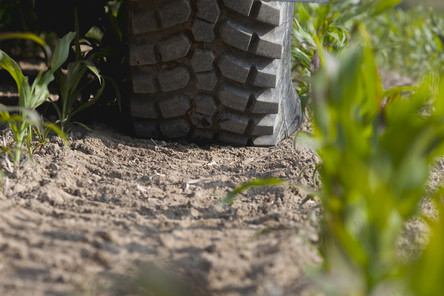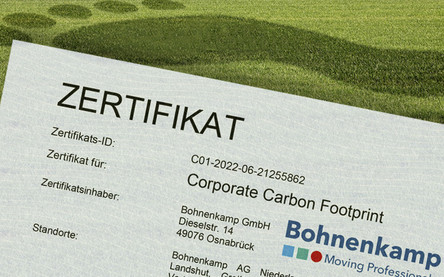Sustainable management of available resources across locations and high energy efficiency are two essential factors for the long-term success of companies. For a long time, Bohnenkamp AG in Osnabrück has been striving to ensure the climate-friendly operation of its warehouse locations throughout Europe. Last year, for example, around 10,000 m² of hall space was covered with an efficient solar power system and the use of geothermal energy for heating was accelerated. The company has also installed energy-efficient LED lighting in the halls and set up a complete recycling loop for cleaning the hall conveyors.
With the now certified Corporate Carbon Footprint (CCF), Bohnenkamp is taking another step towards sustainability. The TÜV survey not only documents the site's CO2 footprint. It also lists the CO2 equivalents produced each year and identifies the most effective starting points for reducing electricity, gas and fuel consumption.
Gregor Rüth, CEO of Bohnenkamp AG, comments: "Many companies trade with climate certificates to prove their climate neutrality. This is a good measure for external communication, but it says little about the actual energy consumption of a company and its sites. By contrast, we want to make day-to-day operations at our sites as climate-neutral as possible through our own efforts. The TÜV Rheinland certification now provides us with a solid data basis to enable us take our next steps."
Based on the TÜV data, Bohnenkamp AG intends to become even more active, especially in the field of regenerative energy. The in-house solar system at the headquarters is to be doubled in size this year and supplemented by an adapted charging concept for the more than 100 forklift batteries in central logistics.
With the independent production of regenerative energy and consumption-reducing measures, Bohnenkamp does not just want to act in a climate-friendly manner for the benefit of future generations. "Sustainability", explains Gregor Rüth, "is now also an important factor for a long-term and successful relationship between customer and supplier."


